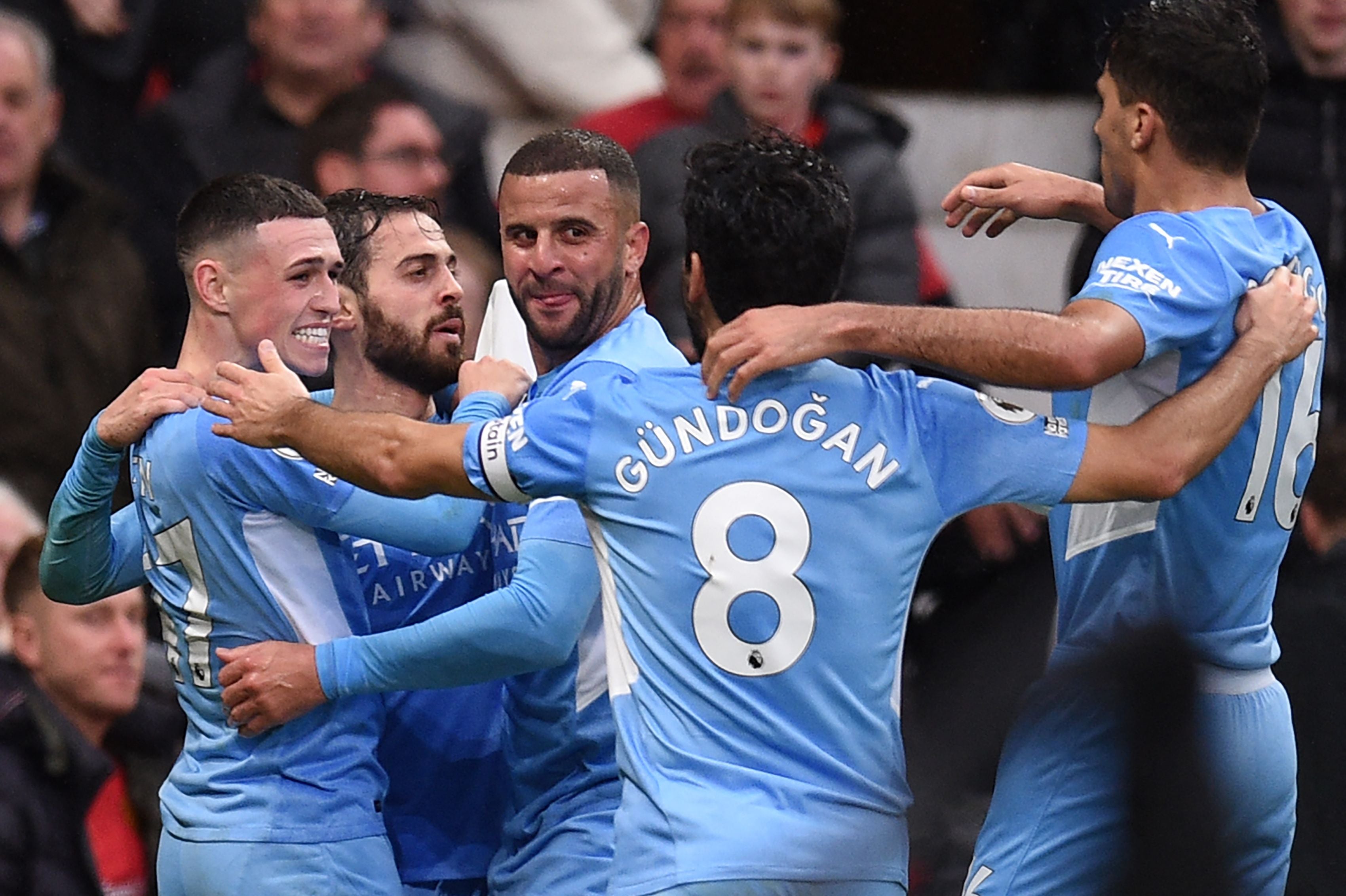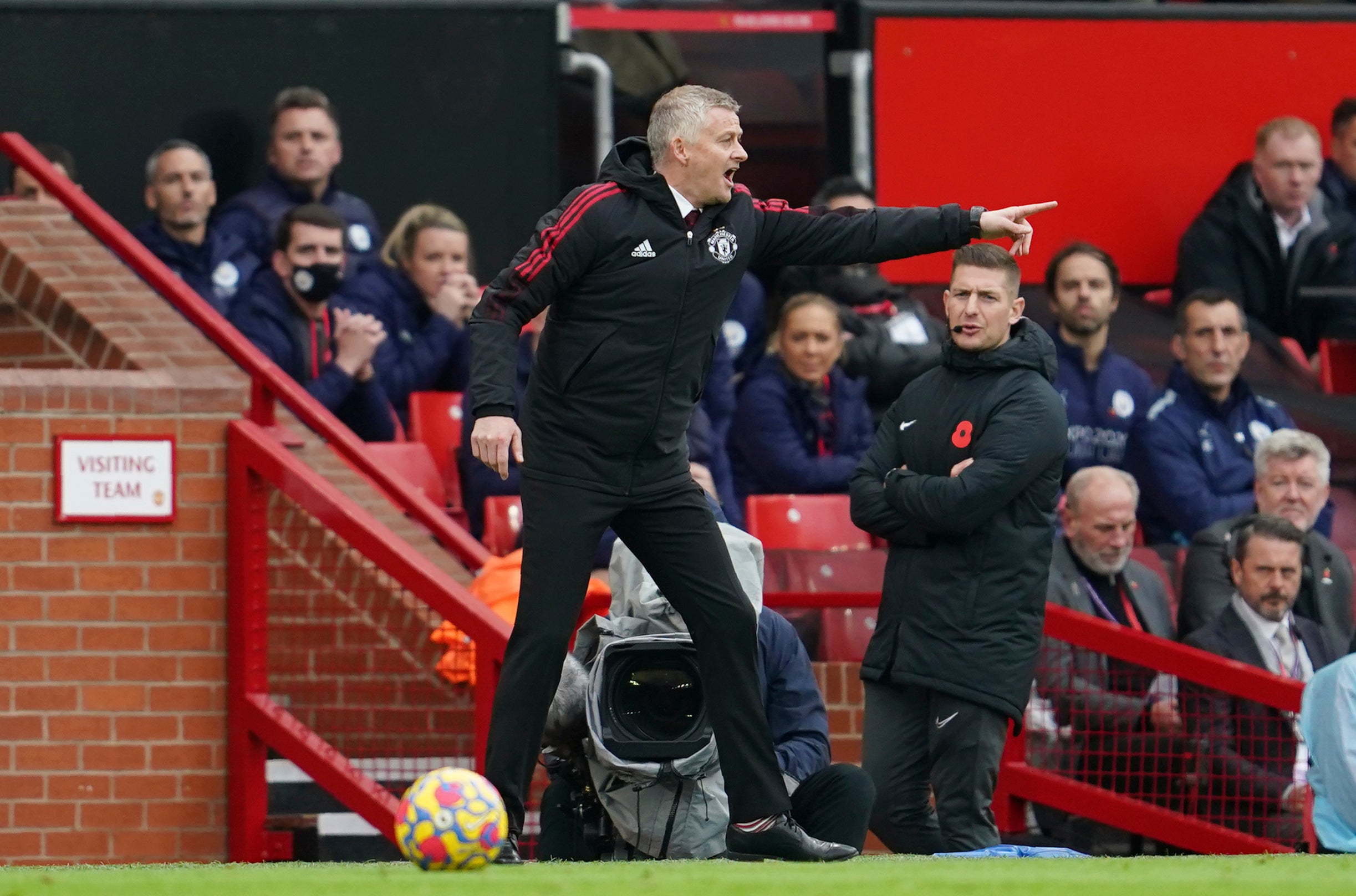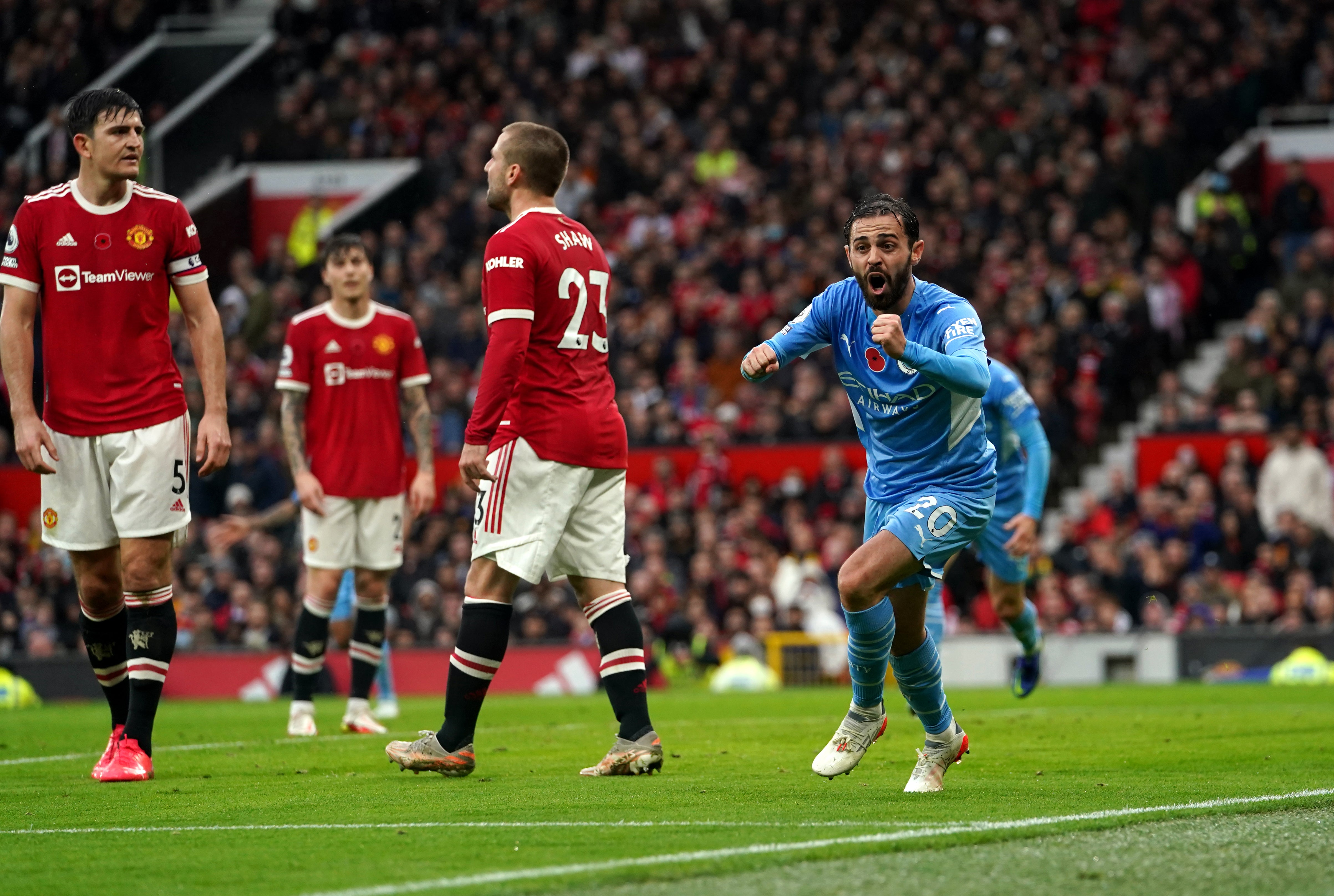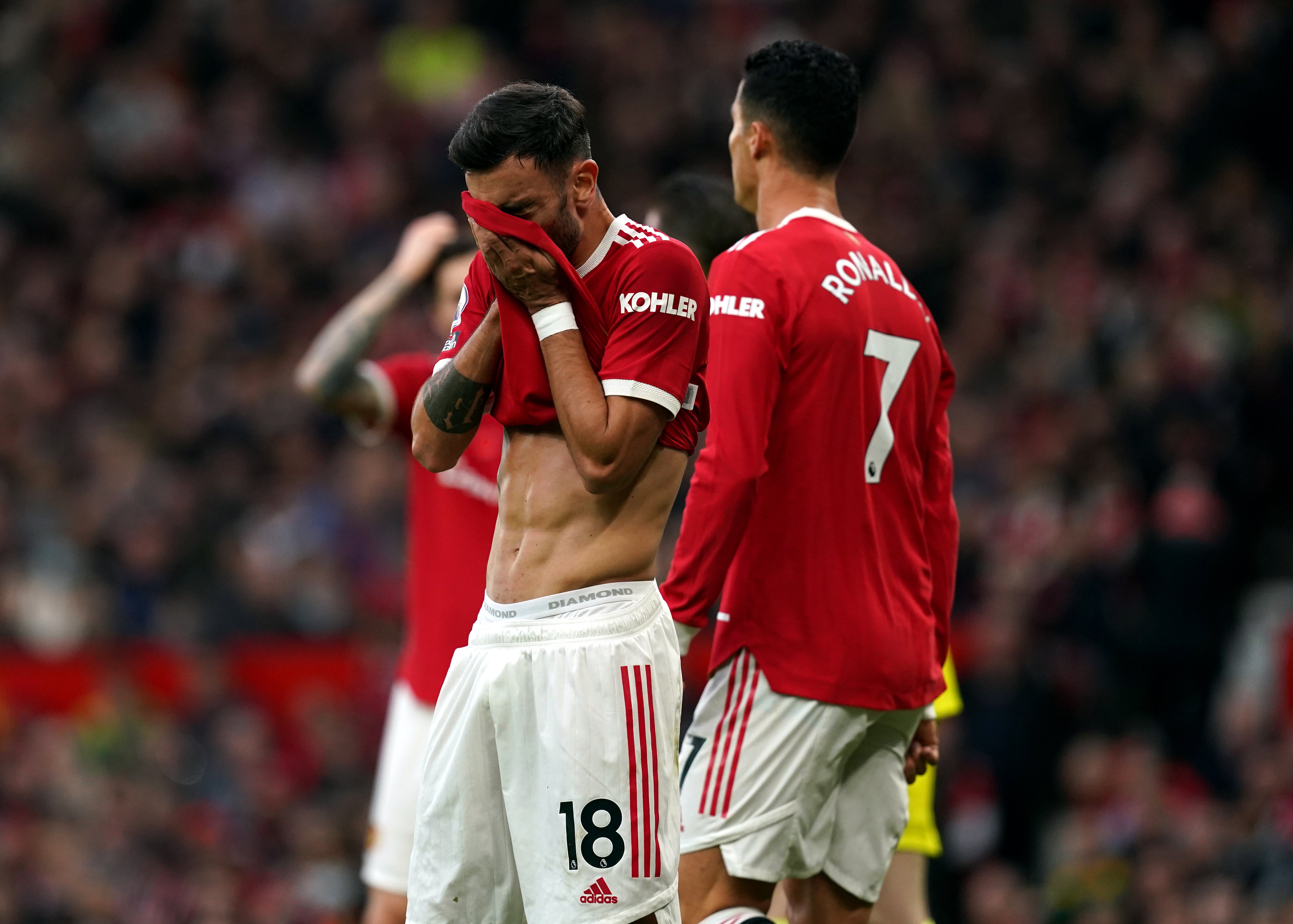Manchester United’s indecision leaves them little choice but Ole Gunnar Solskjaer
In the executive boxes around Old Trafford, the exasperation remained, but so did the expectations. There is currently no feeling that Ole Gunnar Solskjaer will be moved on. The Norwegian himself is planning for the Watford game. If that is still the case by the end of the international break, the last for four months, the only question will be why.
It is by now obvious to virtually anyone this is done. Even if Solskjaer had been a successful coach, which he hasn’t been, it looks like the sort of situation where any effect has worn off and it is time for changes. All of the positives have gone.
United are just left with negatives, right down to the defensive approach against Manchester City. This squad badly need a new direction, as well as some electricity.
The view from sources close to the club and others within the game is that United’s executives are by now well aware of this. Some figures have even floated the idea of bringing in the former RB Leizpig manager Ralf Rangnick as an interim, and he does already have a relationship with the Old Trafford hierarchy. The German would be interested in any such role, but The Independent has been told that one issue is that he would also want some kind of football position afterwards.
That is where it gets complicated for United, and where the source of so much indecision lies. A series of sources repeat the same words, that United “have no plan B”. They just did not envisage it going this badly.
Solskjaer has been the “long-term plan”, worthy of patience and trust, even though it is by now clear that idea deserves neither. So, they have been scrambling to think of what next.
Recommended
If United were to make a move, they would ideally have a top-class coach who could come straight in. None are currently available. The optimum current option is probably Mauricio Pochettino or Erik Ten Hag in the summer. Some in the game think they should go and do what they would do with a player and commit what it takes to extract Ten Hag from Ajax now, but numerous sources say he would not leave mid-season. Even Tottenham Hotspur felt they only had a limited window to get him earlier this year, due to his respect for the Dutch champions. Ten Hag did not want to leave them in the lurch. United might meanwhile have had reservations about Antonio Conte that they see as entirely justifiable, but the wider problem is that he is just the latest elite manager to pass them by.
The lack of football expertise has left them in a situation where all of their main rivals as well as Tottenham Hotspur have the finest coaches in the game – maybe the best four in football right now – and United have a figure who can’t even be described as a novice any more. He’s a 48-year-old manager who has won nothing at the top level of the modern game, and that doesn’t look like changing.
The initial appointment of Solskjaer may well prove one of those juncture moments for a club, but not in the manner thought. Had United pressed on with a director of football in the way they wanted to at the end of Jose Mourinho’s time, they may well have had a more defined ideology in place, as well a greater awareness of what they need – not to mention the realisation that Solskjaer wasn’t up to it long ago. But the Norwegian’s surge at the start disrupted all of that. United were all too quick to entrust him with a more old-fashioned manager’s broad responsibilities, meaning figures like John Murtough, the club’s first football director, do not have that holistic role of many of their peers. A fair question is whether Murtough and technical director Darren Fletcher will be responsible for football decisions like appointing the next manager, or will that go to Joel Glazer and the executive hierarchy?
The great frustration for United should be that they could still win something this season – perhaps even the Champions League – with the right interim coach. It would be wrong to even say stranger things have happened. It has actually been quite normalised in Europe’s premier competition. Three of the last six Champions League winners were mid-season appointments who were supposed to be short-term solutions: Thomas Tuchel (Chelsea), Hansi Flick (Bayern Munich) and Zinedine Zidane (Real Madrid). Before that, of course, there was the original Solskjaer figure: Roberto Di Matteo, in charge of Chelsea in 2012.
Bernardo Silva scores Manchester City’s second goal in the derby
This is why the Rangnick situation is so tantalising, but also instructive. The view from those close to the squad is that United are a team so bereft of basic coaching and structure that anyone offering such management at all would have an immediate impact. As the figure responsible for instigating Germany’s coaching revolution, Rangnick might be ideal for this. He is possibly the best available.
The problem is that promising a future director role in order to get Rangnick, who is currently head of sports and development at Lokomotiv Moscow, may complicate the appointment of the next big manager. Mauricio Pochettino, as an example, would not be that interested in working under the German.
Many around United now believe that the ideal situation, to use that phrase loosely, is Solskjaer or some workable interim steadying the situation, until the next big decision can be made for the summer. It’s just there aren’t that many suitable interim choices currently available, either. It is admittedly a strange job: a short-term stabilisation of a big club.
Recommended
Zidane has no interest at the moment. After that, who is there? Laurent Blanc? Carlos Quieroz? Someone in the international game? There is no obvious solution, but Solskjaer remains an obvious problem.
It’s impossible not to feel like the cycle will continue, and keep going around, maybe even with a win against Watford in two weeks’ time. This is the purgatory United now find themselves in, Solskjaer endlessly rolling the rock up the hill only to see it roll back down.
Source: Read Full Article






